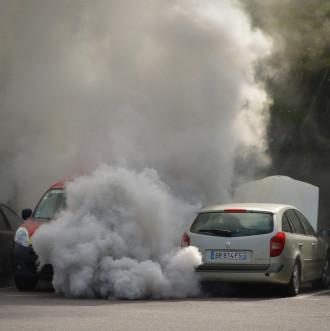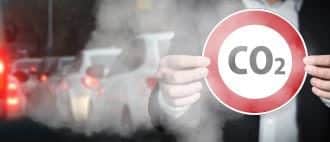By Sydney Cohen
The Health Effects of Air Pollution
Air pollution is one of the most pressing global crises that we are currently facing. Air pollution has been linked to many different diseases, including asthma and cancer, in addition to the environmental and ecosystem harm that it causes. The World Health Organization (WHO) estimates that air pollution kills around 7 million people every year.
This blog post will discuss how you can help reduce your impact on air quality!
Air Pollution
Fuel and gasoline-powered vehicles release exhaust particles into our air, which contribute to global warming. The carbon dioxide fumes get trapped in our atmosphere, warming the planet as sunlight heats the carbon dioxide. Air pollution has many negative health effects on humans and the environment, as the earth rapidly warms.
Cities are a major contributor to air pollution. The large and often dense populations of people using fuel and energy to power their homes and vehicles lead to inefficient and harmful energy use.
The Environmental Protection Agency (EPA) initiated the Clean Air Act to attempt important pollution control, by developing and implementing outdoor air regulations in order “to protect the air we breathe”.
Air Quality
Having access to good air quality is vital for human and wildlife health. As stated, the many negative health consequences of air pollution result from poor air quality, from air pollution. Simple changes in daily routines, such as taking public transportation, walking, biking, or using an electric car to get around, contribute to controlling pollution levels. And in turn, they reduce the fast pace of climate change.
Energy conservation is so important to preserving our planet, and even making sure to turn off the lights in your home helps fossil-fuel-powered homes save energy.
Reducing Air Pollution
We all make choices that impact the air that we breathe. Common activities – such as driving the motor vehicle, mowing the lawn, or burning wood in the fire pit – may add significant amounts of pollution to the air.
YOUR Decision Contributes to Air Pollution Prevention!
Even though you may not solve the problem of global warming by changing your activities, everyone’s decisions are important. You have the power to change your home, transportation, and consumer habits in order to help clean the air and save our planet for future generations.
Air Pollution and Religion
Rabbis Yonatan Neril and Leo Dee discuss in Eco Bible how preventing air pollution is a religious imperative. They discuss the biblical verse in which Moses and Aaron go to Pharaoh and say to him on behalf of God, “How long will you refuse to humble yourself before me? Let my people go that they may worship me” (Exodus 10:3). The Eco Bible says the following about this verse:
Rashi explains: “The word Le’anot, to humble, is derived from the word ‘Ani, poor. You have refused to be humble and meek [poor] before Me.” The implication of this statement is that if Pharaoh were humble, he would properly feel the effects of the plagues, and act differently. Currently, poor people are more impacted by environmental degradation. According to a study published in the American Journal of Public Health, those living in poverty had a 35 percent higher air pollution exposure than the overall population. Related diseases such as asthma have higher prevalence in poorer areas, especially where people live near factories spewing fumes.
Taking Responsibility for Those Affected by Air Pollution
Air pollution disproportionately affects lower-income communities. It is the responsibility of religious people to care for these people who may otherwise be ignored. We can do this by working to reduce air pollution and ensuring that everyone has access to clean air.
YOU Can Contribute to Reducing Air Pollution
Air pollution occurs often in homes and neighborhoods – small causes but with very serious effects. Automobiles, construction, tractors, dry cleaners, backyard fireplaces, and auto parts suppliers are among the most important sources.
Total emissions from these small but widely used sources are considerably larger than all industrial sources put together. To prevent air pollution from these sources the MPCA provides education, guidance, and incentives for reducing air pollution. There are programs that address a range of environmental problems in communities, including improving air quality
Use Filters In Chimneys To Prevent Air Pollution
There should be at least a filtering solution if consumption cannot be lessened. It will help reduce the effectiveness of harmful gas emissions being released into the air. The greenhouse gases emitted from stoves in homes and factories are hazardous to human consumption and harmful to human health.
Recycle and Reuse To Prevent Air Pollution
The notion of recycling and reuse can use resources not only judiciously but is also helpful to combat air pollution and reduce greenhouse gas emissions. The recycled products use less energy for making others and control the pollutants that enter our environment.
Using Alternative Transport To Prevent Air Pollution
Using public transport systems provides the cheapest way to reduce air pollutants as it reduces energy gas emissions. The reduction in emissions by transporting fuels and gas can also help in saving money. When going to school or work, you can also walk or bike, both of which release no pollutants into the atmosphere.
Additionally, electric cars and vehicles have higher efficiency and minimize waste and your carbon footprint. Consider reducing the pollutants you release into the environment by using alternative transportation methods.
* Featured image source







